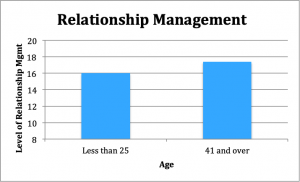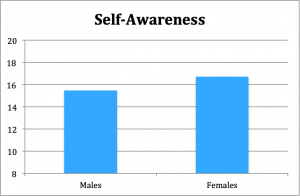There are many different kinds of intelligence, and it’s our job to discover what they are and to integrate them effectively into our lives.
Sources of intelligence can be measured in quotients.
All of us are familiar with IQ, which is primarily associated with our ability to analyse and reason.
There is also a new intelligence on the scene: CQ. This is our cultural quotient, which refers to our ability to appreciate and learn about diverse cultures.
But the most powerful concept on the market at the moment is EQ (emotional quotient), which has been applied in the selection, coaching and development of staff by some 77% of Fortune 500 companies.
This concept of EQ was first advanced by Peter Salovey and John Mayer, but popularised by Daniel Goleman in 1995. These prominent behavioural scientists worked on the concept of emotional intelligence at Yale, Stanford and Harvard Universities.
They described EQ as the ability to recognise, understand and menage our own emotions as well as recognising, understanding and influencing the emotions of others. In practical terms, that means being aware that emotions can drive our personal behaviour and impact others positively and negatively.
Secondly, EQ also has to do with learning how to manage our emotions based on our own insights of ourselves and from the insights we receive from the remarks and feedback of others, especially when we are under stress and pressure.
Individuals are emotional creatures, who often make decisions and respond to issues and events based on their feelings and emotions. This has an enormous impact on our relationships and decision-making.
After examining the wide range of characteristics chosen by behavioural scientists and the various questionnaires available to measure emotional intelligence (EI), T2 decided that these five components were the most appropriate, and we designed an instrument which would cover them:
- self-awareness: it consists of our own goals, beliefs, values and energy levels, as well as our physical presence
- emotional management: this covers our real and imagined feelings; our rational and irrational thinking; and how we deal with our inner mental state
- self-motivation: relates to our stamina, staying power and commitment to complete or achieve any goals we set ourselves
- relationship management: concerns our ability to develop relationships with friends, family and colleagues, as well as the skill to influence and guide others.
- emotional coaching: this skill is the ability to develop emotional capabilities and resolve differences and conflicts, as well as creating a positive attitude towards of others’ strengths and limitations.
In order to establish that our EI questionnaire was reliable, T2 applied Kronbachs’ internal correlation methodology to the five factors outlined above, and found them reliable with correlations between 0.258 and 0.388 between the factors.
During a two-day training programme at British Gas, more than 200 contact centre advisors of various ages and experience took the EI test. These results were also compared to those from questionnaires, which measured values and pessimism/optimism.
Some interesting conclusions can be drawn from the analysis of the statistics.
- When relationship management was related to age, the results indicated that advisors under 25 years scored an average of 16. While those in the 41+ year group scored 17.4.
This tendency was confirmed by a positive correlation of 0.236 between age and relationship management. So we can then conclude that age is a significant factor in improving relationship management.
- Some interesting results were also evident when clear/unclear values measurements were compared with emotional coaching, self-motivation and relationship management.
Clear values related to self-motivation produced significantly positive correlations of between 0.284 and 0.319. While unclear values linked to emotional coaching showed a negative correlation of -0.94. Once again, this demonstrates that having clear values is a desirable characteristics for any contact centre advisor who wants to be effective.
- When examining the results of optimism/pessimism questionnaire and linking them to emotional management, self-motivation and emotional coaching, they produced correlations of between 0.291 and 0.26 with optimism. They correlated negative with pessimism (-0.25 to -0.26).
In addition, the candidates with higher average scores on emotional management (14.8 to 13.8) appeared to be a lot happier. This trend confirms that EI factors relate favourably to optimism.
- The self-aware factor indicated that females are more conscious of this issue, scoring 16.71, while males only averaged 15.49.
- Finally, the results comparing emotional management and experience were rather erratic and didn’t produce meaningful results.
As a result of T2’s wide experience in the behavioural sciences and from the research conducted both at universities and in numerous companies over the past 20 years, we have identified eight qualities which we believe will improve your EI:
- empathy, helpfulness and understanding
- passion, belief and commitment
- satisfaction of your needs and wants
- optimism and positive thinking
- adaptability and flexibility – the essence of change
- control of your feelings
- acceptance of criticism
- defence against emotional sabotage.
These important attributes will lead to higher performance, less emotional stress, improved decision-making, more resilience and wellbeing.
—
Dr Henry Fabian, Registered Clinical Psychologist
Back to Blog



